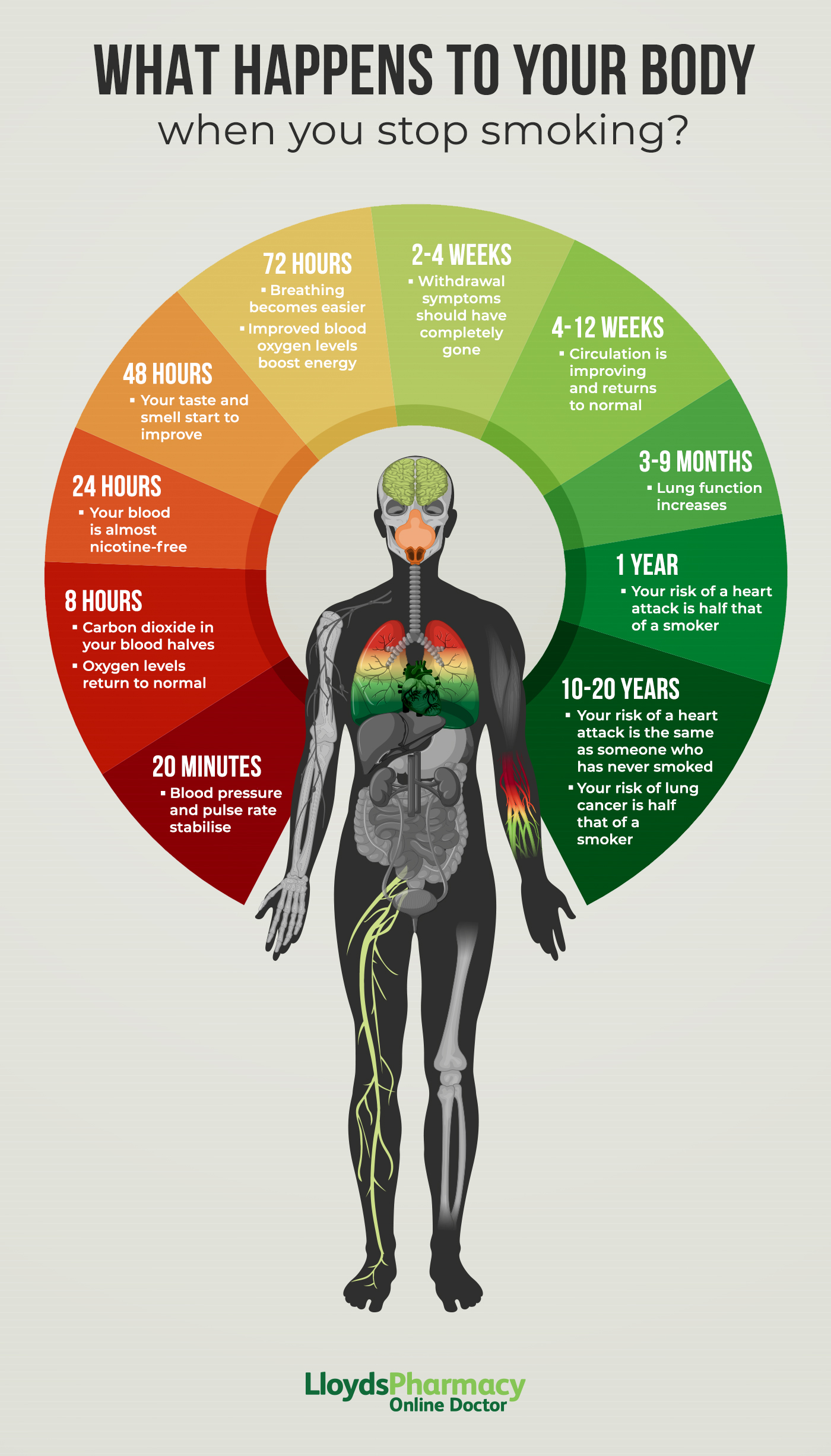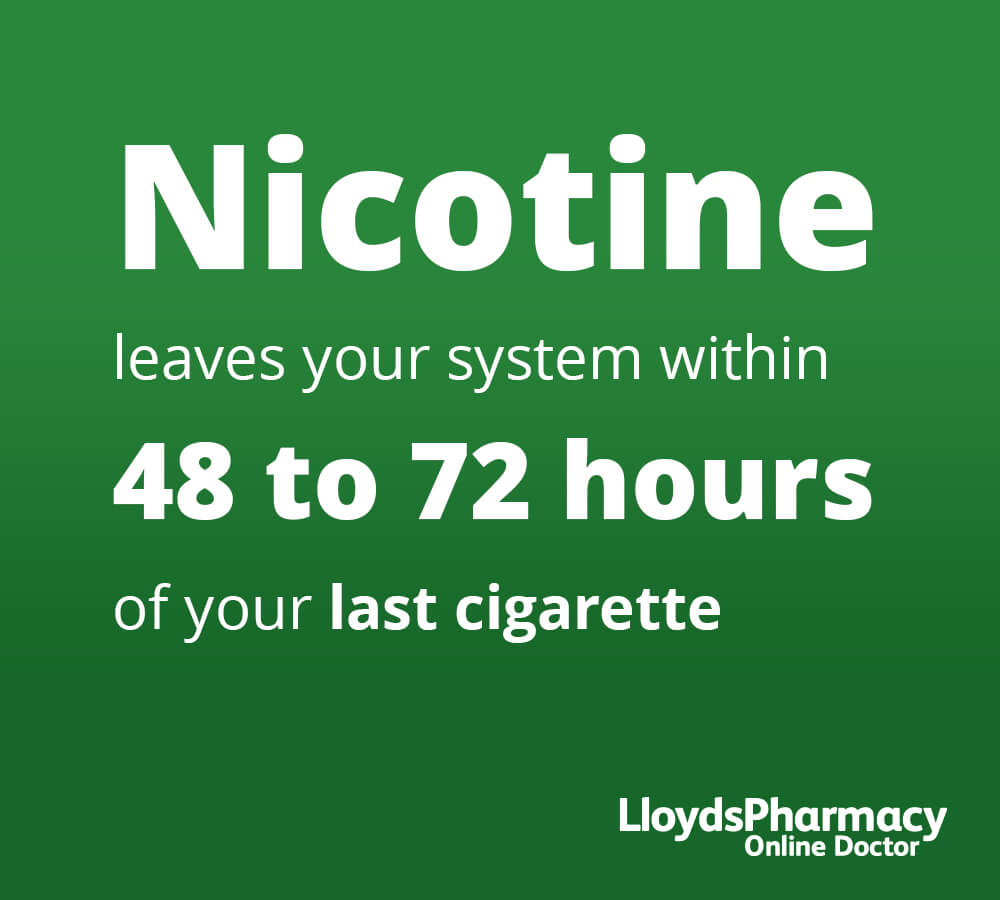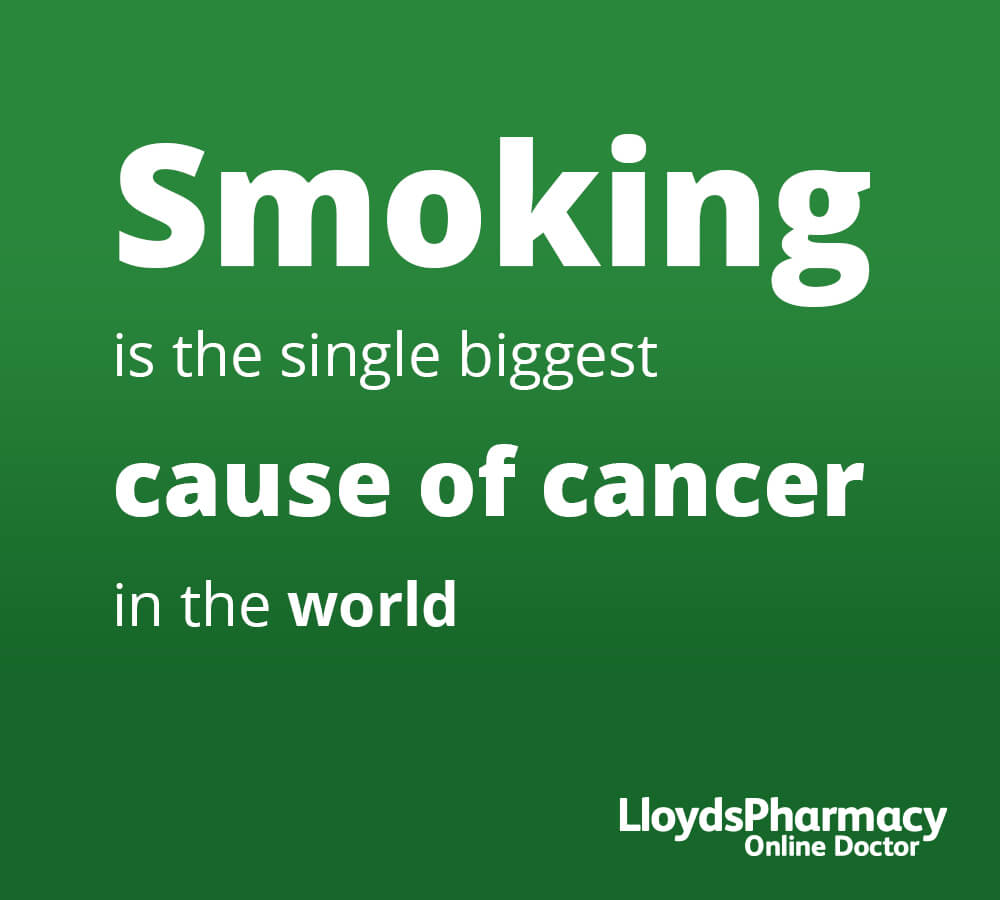Why is quitting smoking so hard?
Written by Dr Gigi Taguri
Around 70% of smokers want to quit, and about 40% try to do so every year. However, only a very small percentage do so successfully (about 6%). Quitting smoking often requires multiple attempts and a lot of willpower to overcome cravings and unpleasant withdrawal symptoms. So why is it so difficult to quit smoking? According to Dr Gigi Taguri, Director of Medical Technology here at LloydsPharmacy Online Doctor, there are 2 main reasons:
1. Nicotine is extremely addictive
The main reason why it is so difficult to quit smoking is that nicotine is physically addictive. The nicotine inside cigarettes gives you a temporary, and extremely addictive, high. It can rev you up, making you feel more alert, more focused and happier. After a while, this becomes a regular, necessary fix, and having nicotine in your body feels normal.
Quitting smoking and eliminating that fix can cause your body to experience intense cravings and physical withdrawal symptoms such as headaches, fatigue, difficulty concentrating and nausea.
2. Smoking is a psychological habit
As well as being addicted to nicotine, smokers are often caught up in the act of smoking as a daily ritual. It may be automatic for you to have a cigarette after your morning coffee or after dinner, or to hang out with other smokers during work. Smoking can be a way of dealing with stress, fatigue or even boredom. It may be that smoking becomes so habitual for you that in order to quit you not only have to deal with the physical addiction of nicotine, but also significantly change your lifestyle to resist dozens of daily triggers.

Why is day 3 the hardest when quitting smoking?
The third day after you quit smoking is often the hardest one. This is because day three is when the nicotine levels in your body are depleted which can cause moodiness and irritability, severe headaches, and cravings as your body adjusts.
Day three is also the day where your bronchial tubes relax. This makes breathing easier and gives you more energy. Use this to get active to distract yourself from cravings and boost your mood with endorphins released from exercising.
Withdrawal symptoms should pass completely 2 to 4 weeks after your last cigarette. Find out what happens to your body when you stop smoking with our stop smoking timeline.

Is it harder to quit smoking the longer you smoke?
The longer you’ve been a smoker the more it will be part of your everyday routine and lifestyle. This may make it harder to kick the habit. Not only do you have to stop smoking, but you also have to change the way your routine works day-to-day.
It’s been found that it can take up to and over 30 attempts to quit, so the sooner you start thinking about quitting, the better.
How can I make quitting smoking easier?
Quitting smoking can be very difficult for some people, but the good news is that there are many different techniques and medicines that can help you.
- Nicotine replacement therapy
Patches, lozenges, gums, inhalers, tablets and nasal sprays can all be a huge help. They release nicotine into your body but without the toxic tar and chemicals that come with cigarettes. This reduces your cravings and withdrawal symptoms.
- Prescription medicines
Champix, Varenicline, Cytisine and Zyban are prescription-only medicines that can be highly effective in helping you quit smoking. Unlike nicotine replacement therapy, they don’t contain nicotine, but rather affect your brain’s reaction to nicotine, thereby dampening cravings and reducing the effect of withdrawal symptoms.
Evidence suggests that prescription treatments can increase your chances of quitting smoking. You can order treatments to help you stop smoking through our safe and convenient Online Doctor service.
However, it’s important to remember that a medication alone will not make you kick the habit. You need to be in a positive frame of mind and make changes to your lifestyle to help support your decision to stop smoking.
- Exercise
Physical activity can help reduce cigarette cravings and relieve withdrawal symptoms as it releases endorphins (pleasure hormones) which make you feel good, reduce stress and give you the willpower to resist cigarettes.
Do your research
Finding out about the many harmful effects of smoking may well give you that incentive boost you need to quit. Here are just some examples:
- Nearly half of all chronic smokers die from a smoking-related condition
- Smoking is the single biggest cause of cancer in the world
- Smokers under 40 are 5 times more likely to have a heart attack than non-smokers
- Lung, tongue, throat, tonsil, oesophagus, bladder, kidney and stomach cancers are all more common in smokers
For more information, see what are the effects of smoking?

Get support
Your local NHS Stop Smoking Service can provide you with a free ‘Quit Kit’ and expert advice over the phone, by email or by online chat.
If you would like a consultation to find out how smoking medicines such as Varenicline can help reduce your cravings, please visit our stop smoking clinic.
Conclusion
Quitting smoking can be tough, especially day three where withdrawal symptoms peak. But with determination, prescription or over-the-counter treatments and support you can become smoke free.
References
https://pubmed.ncbi.nlm.nih.gov/35133411/
https://bmjopen.bmj.com/content/6/6/e011045
https://www.cochranelibrary.com/cdsr/doi/10.1002/14651858.CD015226.pub2





